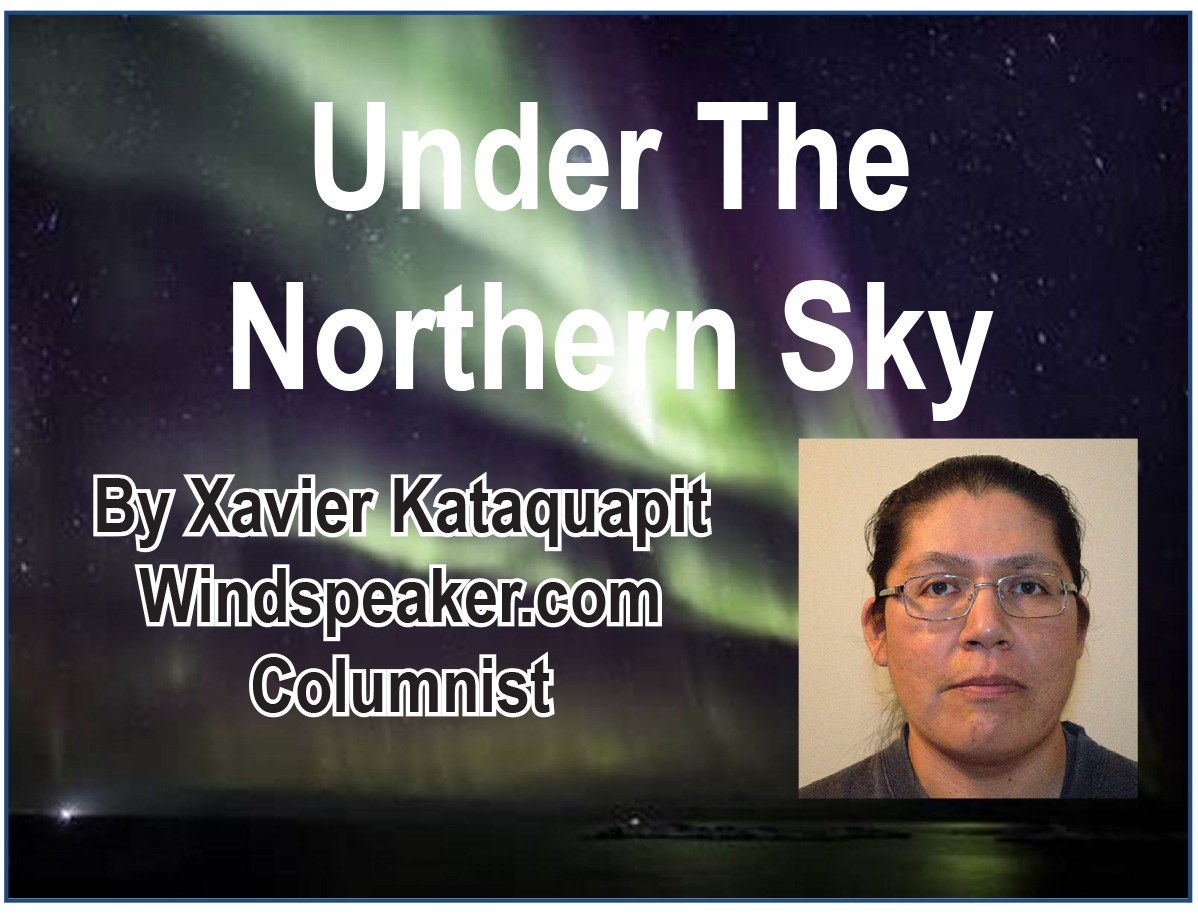
By Xavier Kataquapit
I am very lucky to be able to speak Ininimoon, my traditional Cree language. The word starts with the word Ininew, which is the word for ‘people’ and the last part ‘moon’ refers to the action of speaking words or phrases.
To me, Ininimoon literally translates as ‘the people’s language’. This is a very big deal for me as I have found over the years in wandering around Canada that not many Indigenous people like me in this country can speak their mother tongue.
Happily, I am seeing many efforts by the education system and through Native organizations the development of a focus on teaching the various Indigenous languages to our young people.
At one point, not so many years ago, I was thinking that many of these languages would be lost for the most part, but over the past decade I have seen a lot of good work by many of our leaders to bring back our original spoken words and as well the written forms.
Language means so much to a culture and a people. It gives a foundation of understanding and connection to our ancestors, and the very heart of who we are as a people. When a culture loses its language then it has been assimilated and much of the traditions and connection to history and the means of understanding who we are slips away. We become uprooted when we lose our language.
My parents and my Elders from Attawapiskat and up the James Bay coast managed to keep our Cree language alive and many other Indigenous groups to the south also held on to Ojibway, OjiCree and other languages.
In many cases the language survived because many of our communities were remote or semi remote and often, like islands where my people lived, in another world although we were a part of Canada.
Most of the generation I grew up with spoke Cree in our homes and it was not until later in our childhood that we began to speak English in school and became more involved with it through viewing television and listening to music.
It makes my heart feel good to see so many programs being funded these days to promote the teaching of our Indigenous languages to newer generations. I have been attending language gatherings for the past year and I see a new pride and awareness happening in the young people as they rediscover the languages of their grandparents, great grandparents and ancestors.
In learning the language and pronouncing words and phrases these youth are making connections that run thousands of years back in time. The sound of the language, the feeling of speaking it and understanding the traditional meaning of our words helps to anchor us.
Through the lobbying efforts of our Indigenous leadership at the federal, provincial, regional and local levels, funding has been made available to bring our languages back to our people. I am thankful for the vision of our Elders, leaders and all those who work with organizations to produce programming in workshops and in the education system.
Most recently I attended a Language and Cultural Camp gathering in Timmins that was organized by Wabun Tribal Council and I had a first-hand opportunity to see the teachings of language and traditions passed on to our youth. These types of gatherings are very comfortable for me and it is always great to connect with the teachers and Elders as well as the young people in attendance.
As is the case with every good thing that happens in this world these gatherings are possible only due to the vision, hard work and skills of those people that find the ways and means to produce these important learning situations. I say Meegwetch to everyone who is dedicated to helping in keeping our languages alive.
Indigenous people are making more efforts to rediscover their culture and heritage. This is important to us because it comes from a history where I grew up in a culture where I was discouraged or made fun of for being able to speak my language.
My parents were punished and indoctrinated into believing that their language was worthless when they attended residential school. It was a way for the government to erase our culture by making efforts to teach children to hate themselves and become like every other English-speaking Canadian.
Reclaiming our language is also a road to recovery for our people from that terrible past. I’ve met many people who are learning the language. Some are remembering the words they heard as children, some are learning their ancestors’ language for the first time.
All of them are happy to be reconnecting to their heritage and it is allowing them to become healthy, strong and vibrant individuals that will go on to help others around them. That is the power of language.
